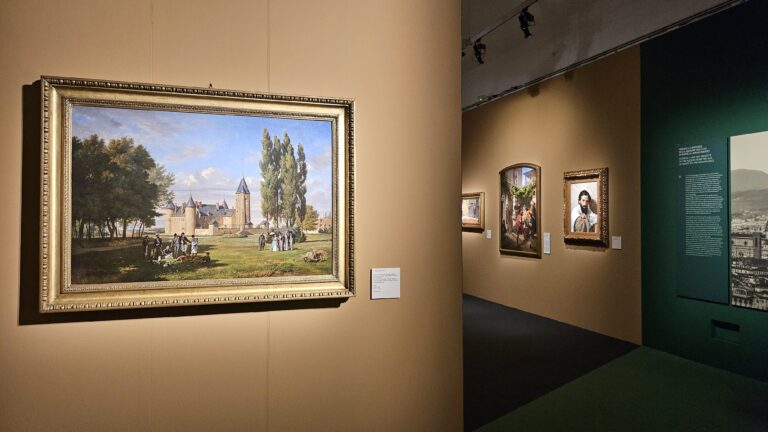Harvington Hall is a moated medieval and Elizabethan manor house located in the hamlet of Harvington in Worcestershire, England. Its moat and artificial island trace back to the 13th century to, and the 14th-century building still survives behind a layer of bricks. The hall was owned by several notable figures over the centuries, including Adam de Harvington, Chancellor of the Exchequer, and the Pakington family in the 16th century, and it was under the latter family that the hall was transformed into an Elizabethan manor house, with Humphrey Pakington adding numerous priest holes to hide Catholic priests during the Elizabethan religious persecutions.
The Mermaid Passage is a significant feature within the house’s complex architecture. It is located on the first floor — a tiny, overlooked corridor that leads from the main part of the hall to the Great Staircase — and contains some of the most impressive wall paintings discovered in the hall. These paintings, dating back to the 14th century, were hidden under layers of plaster and depict various scenes, including Biblical scenes like David slaying Goliath. The name is due to the double-tailed mermaid in the picture.
The passage is also notable for its unique architectural design, which — in the very words of the museum curator — will make you “lose all sense of where you are”.








No Comments